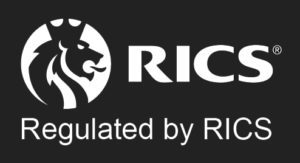Emerging Trends in Real Estate: Europe 2016
The latest PwC Urban Land Institute Emerging Trends in Real Estate Europe 2016 report, published today (13 January), reveals that Dublin is attracting strong capital investment which is driving demand for new property. Dublin is ranked third after Berlin and Hamburg for real estate investment, and sixth for development.
Sentiment remains very positive for Dublin, with real demand coming from overseas companies. Distressed bargains are no longer seen as the attraction here, it is rental growth restarting in a market where little new stock has been created. The report predicts that value growth will soon reach its peak – respondents expect rental growth in Dublin offices, however they expect the real pickup in terms of total return to be for those who have already invested or will invest in the very near term. Further value enhancement will be driven by rental growth, however office space shortages are forecast to continue for several years.
The consensus among respondents is that Dublin has already reached its peak for opportunistic returns. Higher returns can still be found but they are “in the development space or buying land or buying debt”. “The office recovery is well underway and the retail recovery is just starting. Retailers who have sat on their hands are out looking at the best pitches again.”
The report shines a spotlight on fundamental changes at the business end of the real estate industry. It reveals an industry trying to come to terms with the needs of occupiers and the disruptive forces of technology, demographics, social change and rapid urbanisation.
Key findings:
- Investors are focused on urban areas rather than countries – 51% agree that the creation of ‘place’ is becoming the most important factor for real estate performance
- Respondents also favour alternative, more operational assets (e.g. healthcare, retirement living, hotels, student accommodation and data centres), with 41% of respondents against 28% last year considering investing in alternatives
- Residential and student accommodation are now mainstream investment sectors
- One of the most vibrant sectors identified in recent years has been logistics, largely on the back of rapid growth in online sales
- Over 40% expect availability of prime assets to decline
- 78% agree development is an attractive route to acquiring prime assets
- Nearly a third of respondents expect an increase in retail space requirements in 2016
- 55% of respondents say equity available for refinancing/new investment will increase, however expectations are noticeably lower than for 2015
- 41% believe political uncertainty will worsen in 2016
- Nearly 20% of respondents expect office space requirements to shrink in 2016
- Technological advances are providing occupiers and investors with the tools to value property in new and complex ways
The vast majority of respondents are confident in their ability to thrive in 2016. However, they acknowledge it is an increasingly competitive global field for real estate. They are aware that if the wall of capital recedes, European markets could be left exposed. Then it will be the strength of the underlying market fundamentals and management’s operational skills that come into focus.
For the most innovative, forward-looking businesses in real estate, the concept of landlord and tenant is fast becoming outdated: tenants are now consumers of real estate. The clear challenge to the industry is to be less about bricks and mortar and more about service. Two thirds of respondents agree that occupiers are demanding shorter leases.
“20 years ago we had tenants, now we have customers, in 20 years’ time we will have guests.” – European REIT CEO





